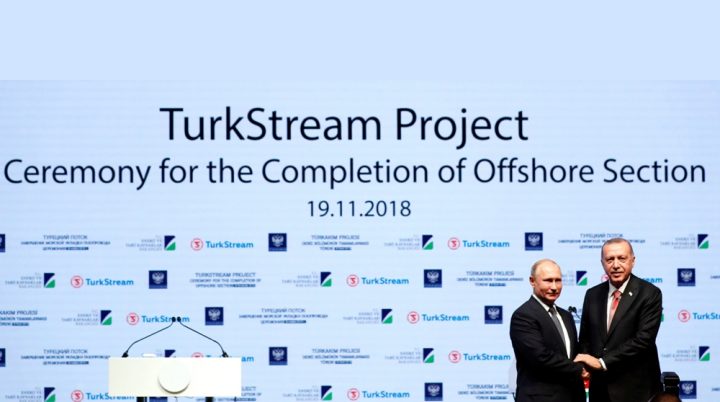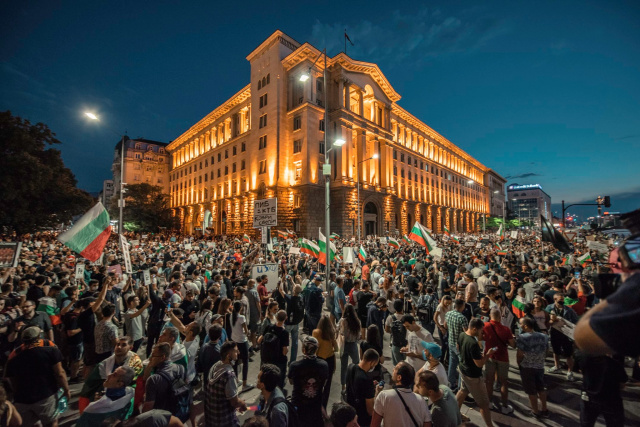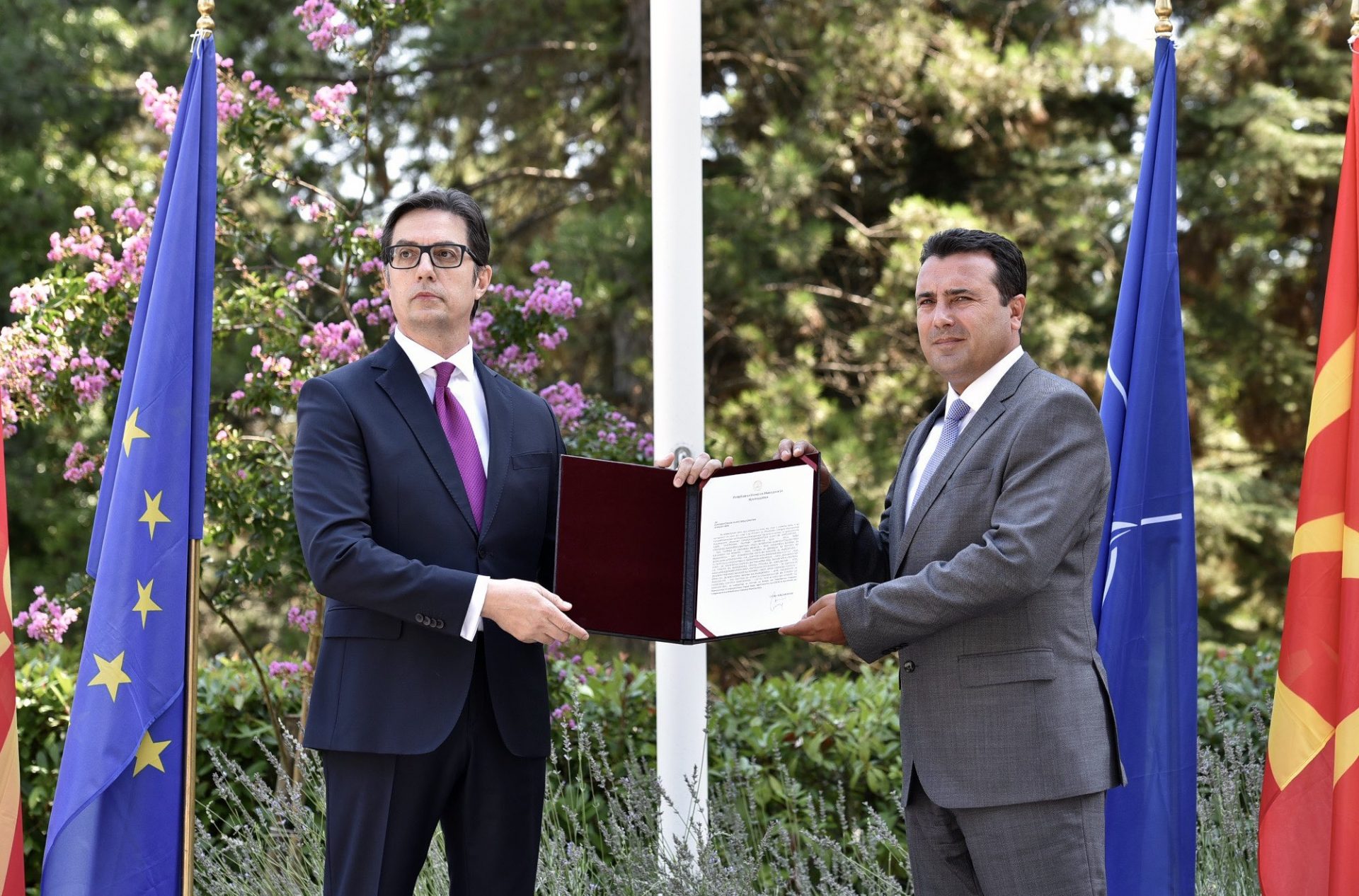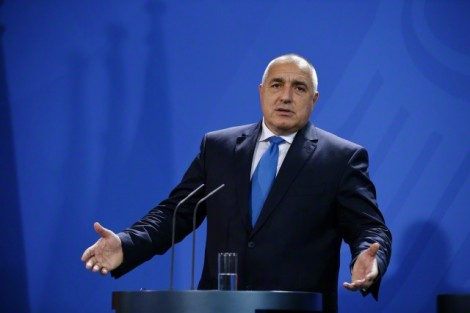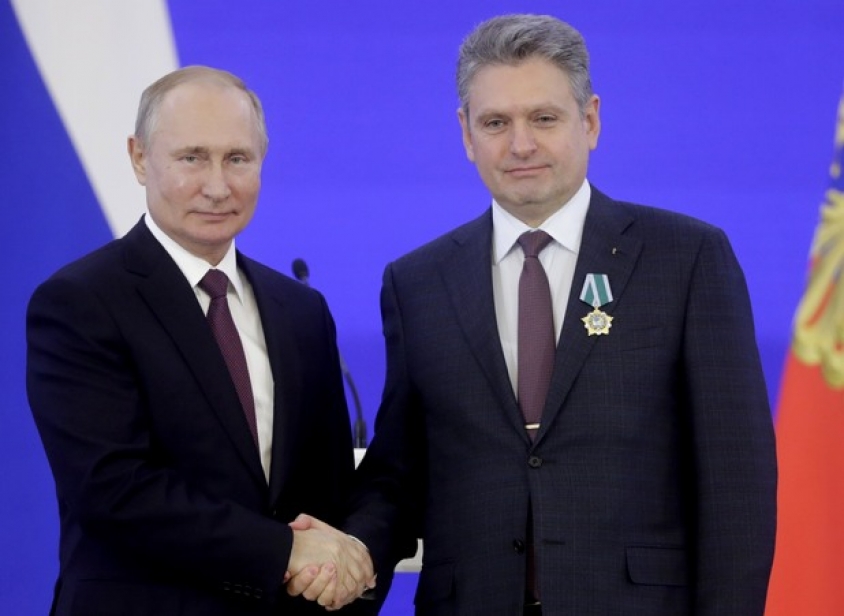PM Borisov’s pet project – the Balkan Gas Hub has risen in prominence after his talks with President Trump. Not sure the US President got into the story behind Bulgaria’s pretense to become a regional gas hub, but good intentions and promises were in abundance. The adopted Strategic Partnership Framework document states that “our shared goal is for Bulgaria to become a true gas hub and a key source of regional energy security, free of monopolists, foreign or domestic, and operating on market principles.”
Nothing specific or imminent insofar as LNG contracts boosting gas liquidity for the Balkan Gas Hub is concerned. The bottom line – Russian gas will continue its monopoly unabated.
The Bulgarian State trader Bulgargas has no intention of replicating Polish, Greek, Ukrainian, Baltic, or Turkish experience and sign long-term LNG purchase contracts with the likes of Cheniere, Venture Global LNG, Sempra Energy, Tellurian or other major US or international traders. So talks of potential deals in the future, taken at net present value, remain a distant virtual option, far from a certainty. Nothing as LNG purchase on the table for 2020 for Bulgargas, either.
Bulgarian authorities are ignoring red flags from Washington on pending sanctions legislation in Congress, seemingly reassured after Borissov’s meeting with President Trump that his transactional diplomacy works and potential sanction against Turkstream-2 and its onshore extension into Bulgaria, will not affect them. The US Ambassador to Bulgaria has also warned that the Turk Stream (she deliberately ignored its Bulgarian government title “Balkan”) is nothing but a transit line, without relevance to diversification. She also pointedly added that the State Department is ready to deny visas and sanction Bulgarian officials and state servants, implicated in corruption.
The text in the proposed new sanctions bill, also known as the Protecting Europe’s Energy Security Act of 2019, defined their reach adding to the Nord Stream 2, “the TurkStream pipeline project, or any project that is a successor to either such project”.
The draft legislation, expected to be voted in mid-December, targets only pipe laying vessels and the offshore segment of the Turkstream, which has long been completed. So it is unlikely to impact companies engaged in works on the land sections in Turkey, Bulgaria, Serbia, and Hungary, where sanctions could halt the project altogether.
Ceteris paribus, if adopted in its present form, the bill won’t have any sizeable footprint on the Turkstream and Gazprom’s dominant role in the regional gas market. The example of Poland and the Baltic states with significant LNG diversification will not be replicated.
It’s not so easy to apply precisely targeted sanctions on companies engaged in the onshore segment of both Nord and Turk Stream. Many companies can do that work; a lot of them would not care about being sanctioned. A different solution is needed, but it seems unlikely given the pace of reaction of EU and US institutions.
The goal is to reassure alternatives exist, and competition to the incumbent Gazprom monopoly thrives, bringing regional gas prices of natural gas at par levels with the West European market.
Ultimately, at stake are not abstract geopolitics or any individual leader’s ego but the control over substantial cash flows that affect the welfare, security, and competitiveness of Turkish, Bulgarian, Serbian, Hungarian, Greek, or Romanian consumers.
It is also about the asset value that the international capital market would recognize for companies in the energy sector, for other related assets and shareholdings, the risks they can afford to take, the pace at which they can grow and the affordable debt levels.
Suffice it to look at the case of the Bulgarian TSO Bulgartransgaz (BTG) and the high risks it takes by engaging in a project well above its league.
The BTG, which has assets for BGN 1.8 billion (EUR 0,9 billion), embarks on a project worth BGN 2.5 billion (Euro 1,28 billion), without any prior relevant and applicable experience in managing projects anywhere near that size.
The incurred debt on the new gas pipeline is secured by both the specific project’s assets and BTG’s proper assets. This seems natural given the need to cover the risk between the already money spent and the revenues not coming or less than planned, which might well be the case. The risk flies even higher with the near certainty of the EC not granting an exemption to the Balkan/Turk Stream, forcing Gazexport to cut long-term transit contract term to 50% of capacity. This will instantly reflect on the long term revenue forecast, resulting in problems servicing a growing accumulated debt above Euro 1,4 billion.
Worth considering another legitimate risk scenario – what happens if the project is not completed by June 30th, 2020, on top of a compromised repayment schedule?
The potential outcomes are as follows:
- a. Gazprom, using the intricate system of back channels of implicated funding institutions, underwriters of the Balkan Stream debt, takes control of the asset-based collateral. The Russian gas monopoly doesn’t even need to come out in the open, it could use intermediaries, as was the case with the Bulgarian Telecom Vivacom and the VTB.
- b. Gazprom collects hefty penalties, BTG sinks into deeper debt, and the Bulgarian government becomes more vulnerable and exposed to Moscow’s blackmail, undermining its bargaining position in future gas talks.
- c. Government officials and top management of implicated companies get sacked, the prosecutor’s office starts a window-dressed investigation, but ultimately the junior level foots the ‘bill.’ The ‘untouchables’ rejoice, as the Balkan Stream is rubber-stamped by the National Parliament, i.e. it is an anonymous collective, not individual responsibility.
The BTG management could well resort to increasing capacity and utilization based entry-exit tariffs, claiming higher operating costs. The Bulgarian regulator does not approve entry-exit tariffs, only supervises them.
Finally, Gazexport gets an additional advantage over competitors that use the Bulgarian transmission and transit systems.
So what might be a huge gamble, a ticket to the World of Grand Politics for the Bulgarian PM and the TSO, as were all other oversized Russian energy projects in Bulgaria, becomes a certain win for Gazprom.

